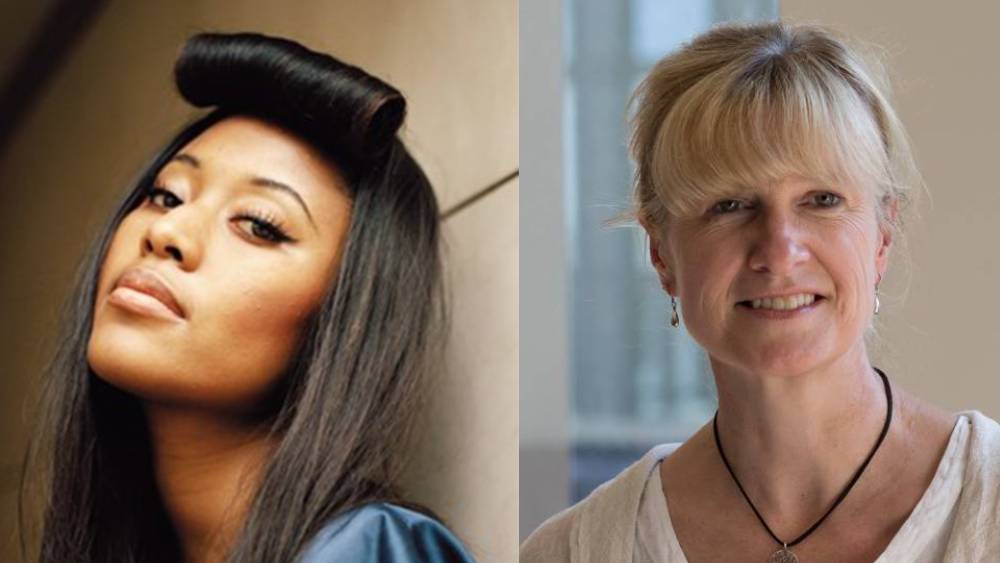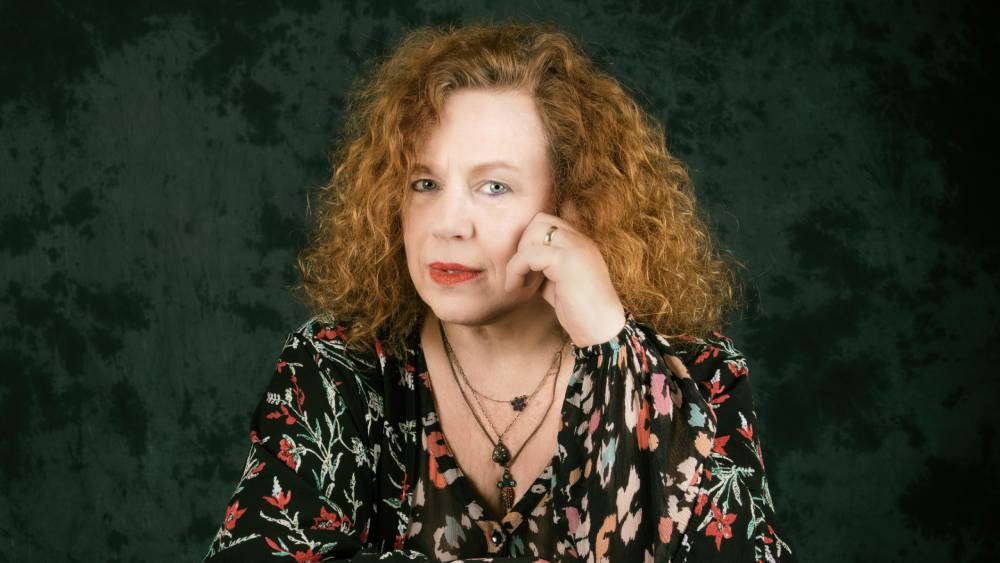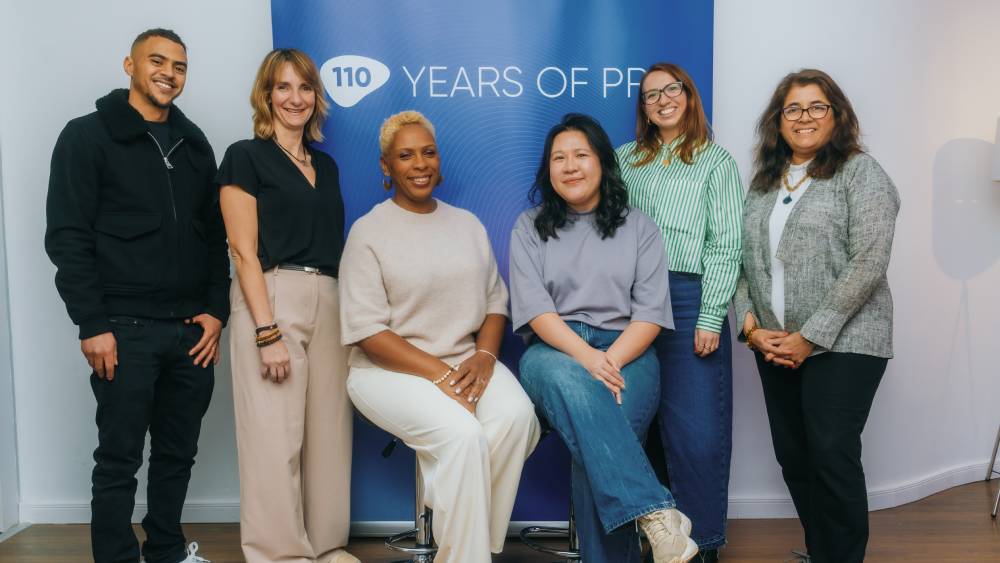Jessica Curry got her break in composing for video games quite by accident. It came about after her husband, Dan Pinchbeck, asked if she would write some music to accompany an experimental project for his gaming-related PhD.
That turned into Dear Esther, a video game set in the Hebrides that follows a man reading letters to his dead wife. Initially put online for free, Jessica and Dan then released a revised version through their own game development studio, The Chinese Room, in 2012. They weren’t expecting much, says Jessica, but within six hours they had sold 16,000 copies. That figure has since reached over a million. ‘We were in shock because we weren’t trying to make a successful game,’ Jessica tells M. ‘It just was an accident.’
Dear Esther won praise and accolades, particularly for its soundtrack, and other games developers began approaching the couple, meaning Jessica found herself running a games company as well as composing. She’s gone on to write games scores for the likes of Everybody’s Gone to the Rapture, for which she won a BAFTA, while her new choral album, Shielding Songs, includes some of her games music.
‘It wasn't a usual way into the [gaming] industry,’ she reflects. ‘Although I think if you talk to games composers, there will be as many ways in as there are composers.’
Nainita Desai grew up as a gamer and a fan of technology in general. Following a degree in maths, she got work as a sound designer and music engineer before taking the plunge to become a professional composer. She sent out showreels to names in a directory and got a response from games publisher Empire Interactive, but when that company closed down in 2009, she re-focused her efforts on TV and film.
Nainita finally arrived at what she calls her ‘second career’ in gaming, though, after being named as a BAFTA Breakthrough Brit in 2016. Designer Sam Barlow, best known for his work on the Silent Hill series, asked her to compose music for his next project, Telling Lies, and then another, Immortality. Since then, Nainita’s gaming career has gone from strength to strength: ‘I’m now working on two major AAA games which I can’t tell you about, but they are kind of a dream come true for me.’
'If you talk to games composers, there will be as many ways in [to the industry] as there are composers.' - Jessica Curry
Last month Winifred Phillips, who has composed music for the likes of Assassin’s Creed III and LittleBigPlanet, took home the Grammy for Best Score Soundtrack for Video Games and Other Interactive Media for her music for the 2023 title Wizardry: Proving Grounds of the Mad Overlord. The award was a deserved culmination of her similarly concerted effort over the course of her career as a composer to combine her passions for music and gaming. Her big break came after she began introducing herself over email to games developers — a tactic which piqued the interest of Sony Interactive just as they were assembling a composer team for God of War, which received huge acclaim on its release in 2005. ‘This success launched my career as a game composer,’ Winifred tells M now.
Composing for a video game can be very different to other forms of media, says Winifred, which means a different creative process is required. For a start, games often aren’t linear, with their course charted partly by player decisions. ‘The music needs to be structured in specific modular ways, allowing it to be triggered by the game engine according to player progress through the game,’ she explains. The more ambitious and interactive the music design, the more complex this modular structure becomes, with the overall composition requiring ‘dozens upon dozens’ of music segments and components.
‘As I’ve accumulated experience in games music composition and grown increasingly comfortable with the demands of interactivity, my creative process has evolved to embrace interactivity and be inspired by it,’ Winifred says.
Coming from a more technical background, Nainita says she appreciates the strict parameters that gaming composition often requires. For instance: how interactive does a piece of music need to be? Does it need to loop? Video game composers therefore need to be keenly aware of these technical constraints on top of the broader context and narrative storytelling of the game.
‘I can’t modulate much,' Nainita explains. 'I can’t change key too much, and I have to stick to the same tempo within a piece of music.' The goal is to satisfy these criteria while still creating music that flows and never feels repetitive or boring. Compared to film and TV scoring, she says, the process is longer and more structured; she’ll often be working on a gaming project for a couple of years.
But that doesn’t mean the music isn’t creative — quite the opposite. One of Nainita’s favourite projects to work on was the 2024 game Tales of Kenzera: Zau, a coming-of-age story inspired by Bantu culture that deals with themes of grief. Nainita combined this inspiration by working with an orchestra and incorporating Afrofuturist elements, making a point of working with a diverse group of musicians to bring the music to life. ‘I think games have a way of being able to go quite deep and cover serious subjects that you wouldn't necessarily be able to do so easily in film and TV,’ she says.
As the co-founder of a gaming studio, Jessica says she has had more flexibility in her approach. For example, she could work alongside designers, writers and programmers from the very start of the development process. ‘I was in a beautiful position to work directly with those people and say, “How do we craft this so the music is perfectly fitting within the world?”’ she adds. ‘That’s what people responded to in terms of loving the music in the games, I think.’
It’s this response that makes composing for video games so rewarding. Jessica says she gets messages of support from people every day, which she attributes to how connected people feel to the games they play. ‘I think because I write emotional music it tends to accompany people through very significant parts of their life,’ she tells M. She recently received a message from someone saying they were listening to the music from Everybody’s Gone to the Rapture on repeat while fleeing a war-torn country. ‘That to me is extraordinary, and it’s why you do it,’ she says.
But there are drawbacks to being a female composer in the male-dominated gaming sector. ‘Often being the only woman in a room is tiring,’ says Jessica, who feels pressure to represent all women rather than just be herself. ‘You’re always representing something, and that comes with responsibility, whereas men just get to create good work — that in itself is already pushing them forwards.’
In 2015, Jessica took a step back from her role at The Chinese Room and outlined her reasons in a blog post — including the unhealthy business demands of the gaming industry and the bias she faced owing to her gender. Games publishers and media would often assume she held a junior position or downplay her role in the company, giving her husband all the credit. Speaking out came at a cost.
‘After I wrote that blog post, most people wouldn’t take a meeting with The Chinese Room,’ Jessica says. She focused on other projects, but says that her departure effectively tanked her career in the games industry. ‘I felt that speaking out was more important than the work,' she tells M. 'Would I do that again? I'm not sure.'
'Video games have a way of being able to go quite deep and cover serious subjects that you wouldn't necessarily be able to do so easily in film and TV.' - Nainita Desai
Nainita says that while she hasn't personally faced particular barriers as a female composer in gaming, she acknowledges that there are not enough women in the space. This could partly be down to an enduring stigma or misunderstanding about gaming, she suggests, although this is changing. ‘I have a lot of female composer friends who are really interested and value and respect the art and craft of games music, and that’s really refreshing,’ she says.
The onus is now on the gatekeepers of games music, such as audio directors, to keep an open mind and welcome composers from diverse backgrounds. Just as in other sectors, like film and TV music, women can help support one another and become role models, says Nainita: ‘We are getting there slowly — we’re inching, crawling forward, but it’s a much better landscape than it was five, 10, 15 years ago.’
Winifred similarly believes there’s plenty of reasons to be optimistic. ‘I’m seeing a lot of young women entering the field and making their mark, which is very exciting!’ she says. ‘Our numbers have grown steadily over time, and I’m confident that we’ll continue to make strides moving forward.’
For those looking to break into games music, one advantage is that there are so many different ways in. Unlike classical music, as Jessica points out, you don’t have to go to the right conservatoire. Nainita, meanwhile, recommends joining organisations such as the Game Audio Network Guild and attending gaming conferences, while Winifred encourages aspiring composers to seek opportunities to build their portfolio with young indie studios or on student game development teams. The latter also points out that PRS members who work in video games are in a strong position due to the society's work in negotiating royalties with games companies: ‘It’s been deeply meaningful to the game music community.'
Jessica is optimistic that a new way of working that is more ethical and creative, welcoming people from different walks of life, is possible in the gaming industry — and that extends to composers, too. ‘The revolution begins here,’ she says.
Jessica Curry's new album Shielding Songs is set for release in June.





